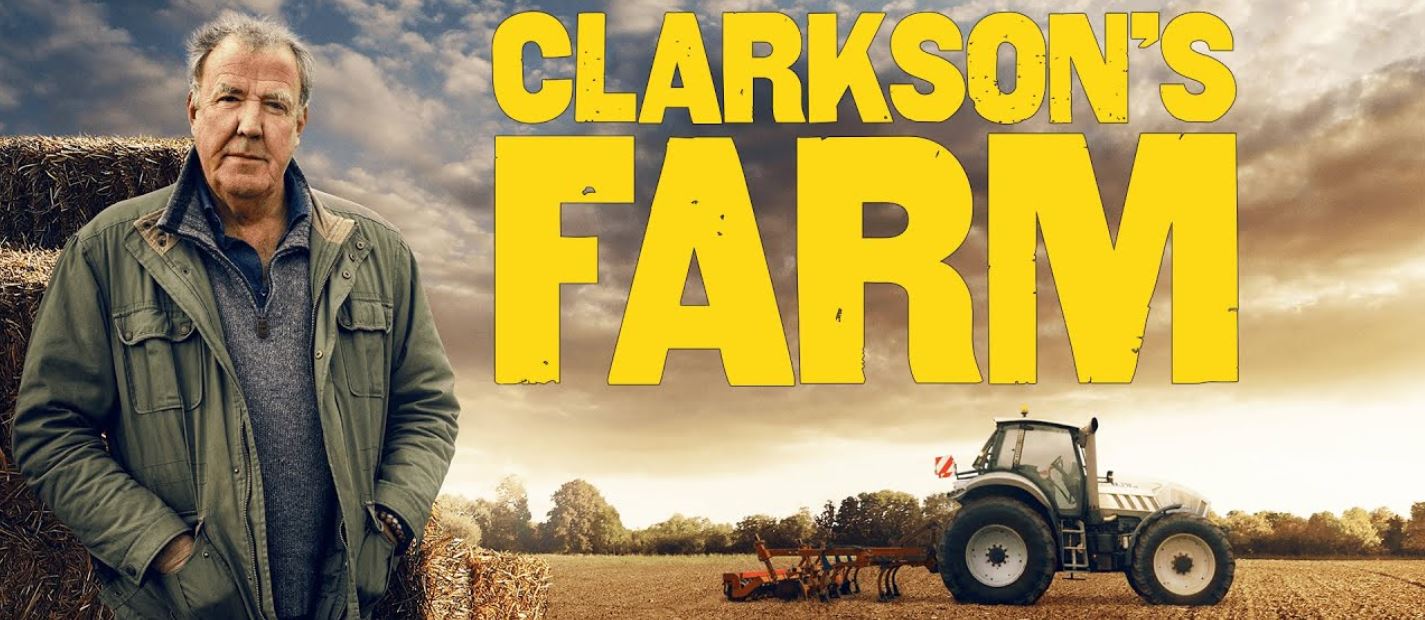
Season 3 of Clarkson’s Farm just dropped on Amazon Prime. It’s getting some coverage and is rated highly on IMDB and Rotten Tomatoes.


You should watch it anyway. Think of it as a real-life version of Green Acres, but with much better production values.
The world is a big place and with so many media choices, it’s hard to know all the big celebrities. I don’t know who Lizzo is, and could not distinguish her from other fat Black girls. I couldn’t recognize a single Taylor Swift song. I am familiar with Jeremy Clarkson, but many other people aren’t.
Jeremy Clarkson is a British media personality who was born one day after I was. He writes provocative columns in The Sun and The Sunday Times challenging Woke culture, political correctness and virtue-signalling politicians. Clarkson got his start covering motor sports and cars in a BBC show called Top Gear with co-hosts Richard Hammond and James May. They built Top Gear into the most popular TV show in the world.
Top Gear had reviews of new car models, high-end sports cars and other car-related topics, but this segment gives a good sense of the humor and anti-PC message.
Clarkson is irreverent and bombastic. He will intentionally play the fool for good TV. His bombastic nature eventually got him in trouble with the BBC, and he left the show. He, Richard Hammond and James May started a similar show on Amazon Prime called The Grand Tour.
In 2020, during the Covid shut down, Clarkson had a private business challenge that he thought might make a good reality show. He had a 1000 acre farm that he’d purchased 10 years before. His farm manager retired in 2019, so something had to be done with the farm. At 60 years old, Jeremy thought that he’d like to become a farmer.
Part of Clarkson’s appeal is that he is bumbling and impetuous. He isn’t presented as an expert, but as an enthusiastic novice determined to make a go of it. Clarkson is assisted by Kaleb, a 22 year-old local farm boy with plenty of experience, Charlie, an established land agent, and Lisa, his charming and willful Irish girlfriend. Clarkson often goes against good advice to try it his own way.
Early in the first season of Clarkson’s Farm, a tractor is needed for the farm. Charlie introduces Clarkson to agricultural auctions and suggests some tractor models. Clarkson decides to buy a Lamborghini tractor because of their prestigious sports cars. Kaleb knows the tractor is too big and complicated for their needs, but Clarkson likes it. Kaleb is correct, Clarkson is mocked relentlessly, and hilarity ensues.
What makes Clarkson’s Farm politically influential is that Clarkson legitimately wants the farm to succeed as a farm. Clarkson is a rich guy. He can afford a Lamborghini tractor, or renovate an old building to become a restaurant. The challenge to Clarkson is find ways to generate income. It appears that capital improvements don’t go into the budget. He pays for those out-of-pocket. On the show, income and expenses are meticulously tracked. With unreliable weather, local bureaucrats and fluctuating commodity prices, every season is a gamble. Clarkson shows the burden that farmers are under to produce the food we all want. Farmers in America, the UK and Europe appreciate that Clarkson is explaining their plight like no one ever has.
Jeremy Clarkson created something wonderful. His farm could have remained a vanity project for a retired celebrity. The show could have been just a fish-out-of-water comedy. Instead, Clarkson shows that becoming a farmer is, on some days, the best thing he’s ever done. On other days, it’s the worst. There are poignant moments were his animals are struggling to live, and hilariously frustrating moments where his animals are struggling to escape into a neighboring pasture.
Clarkson’s Farm is engaging and informative. There is the typical British profanity and bawdy humor. It’s all pretty mild. Watch it on Amazon Prime. 9.5/10.
If you’d like more background on Clarkson’s Farm.